Emotional Intelligence and its Relationship in Higher Education
VerifiedAdded on 2022/08/23
|6
|1230
|28
Essay
AI Summary
This essay investigates the crucial role of emotional intelligence within administrative departments in higher education, focusing on its impact on leadership, organizational creativity, and employee performance. The research explores how emotional intelligence influences administrative behaviors and contributes to the success of academic institutions. The study employs a mixed-method approach, combining qualitative and quantitative data collection through interviews and questionnaires to analyze the relationship between emotional intelligence and administrative effectiveness. The essay also examines the importance of emotional intelligence skills such as embracing educational changes, persistence as well as self-motivation, and explores the development of a conceptual model linking emotional intelligence and administrative leadership. The findings highlight the significance of emotional intelligence for academic leaders and the need for institutions to adopt modern management tools to maximize administrative capabilities. The essay also provides an overview of the research methodology, including the research approach, data collection methods, and the use of thematic analysis to interpret qualitative data. The research aims to understand the impact of the emotional intelligence besides its relationship with administrative department in higher education.
1 out of 6
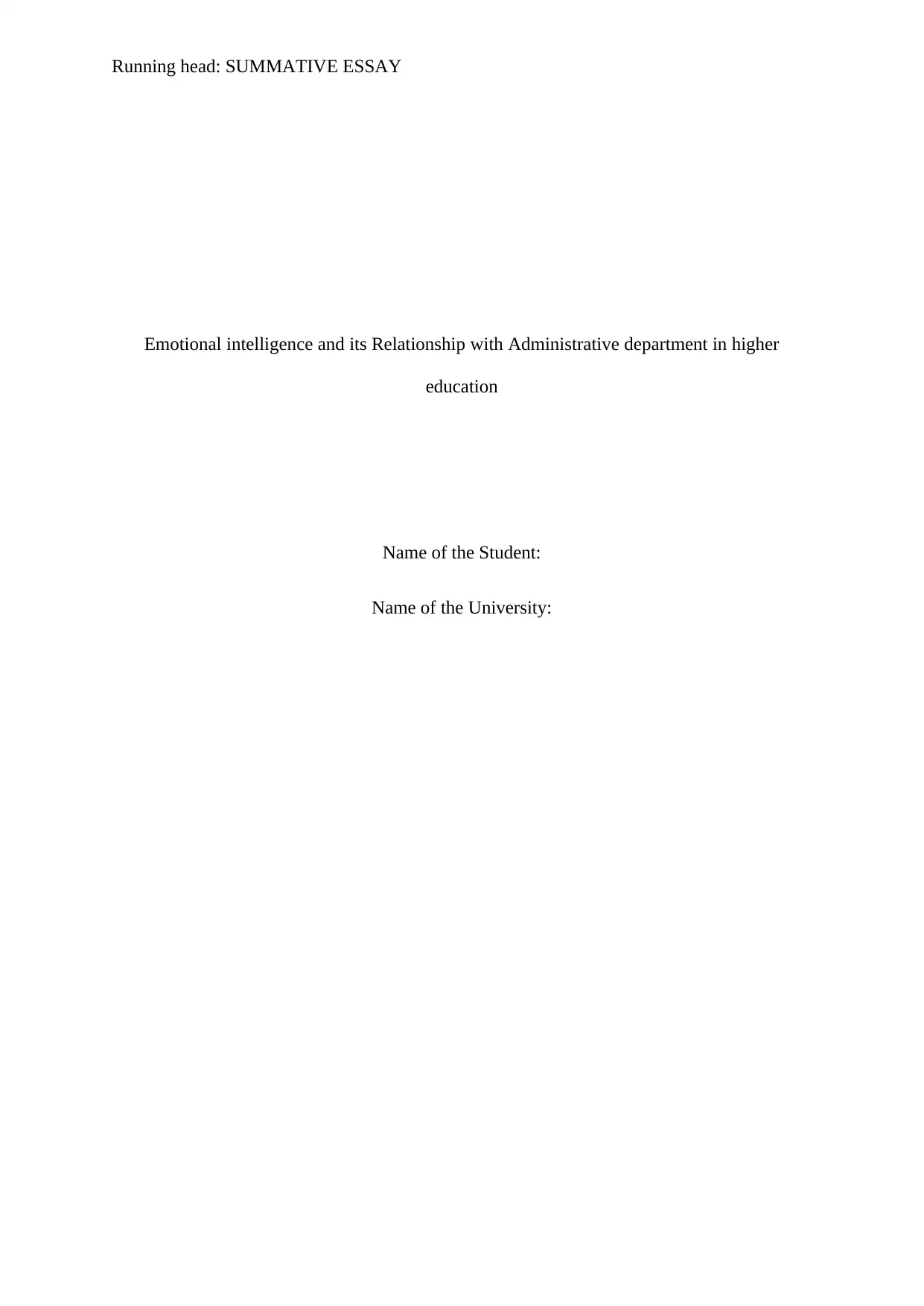
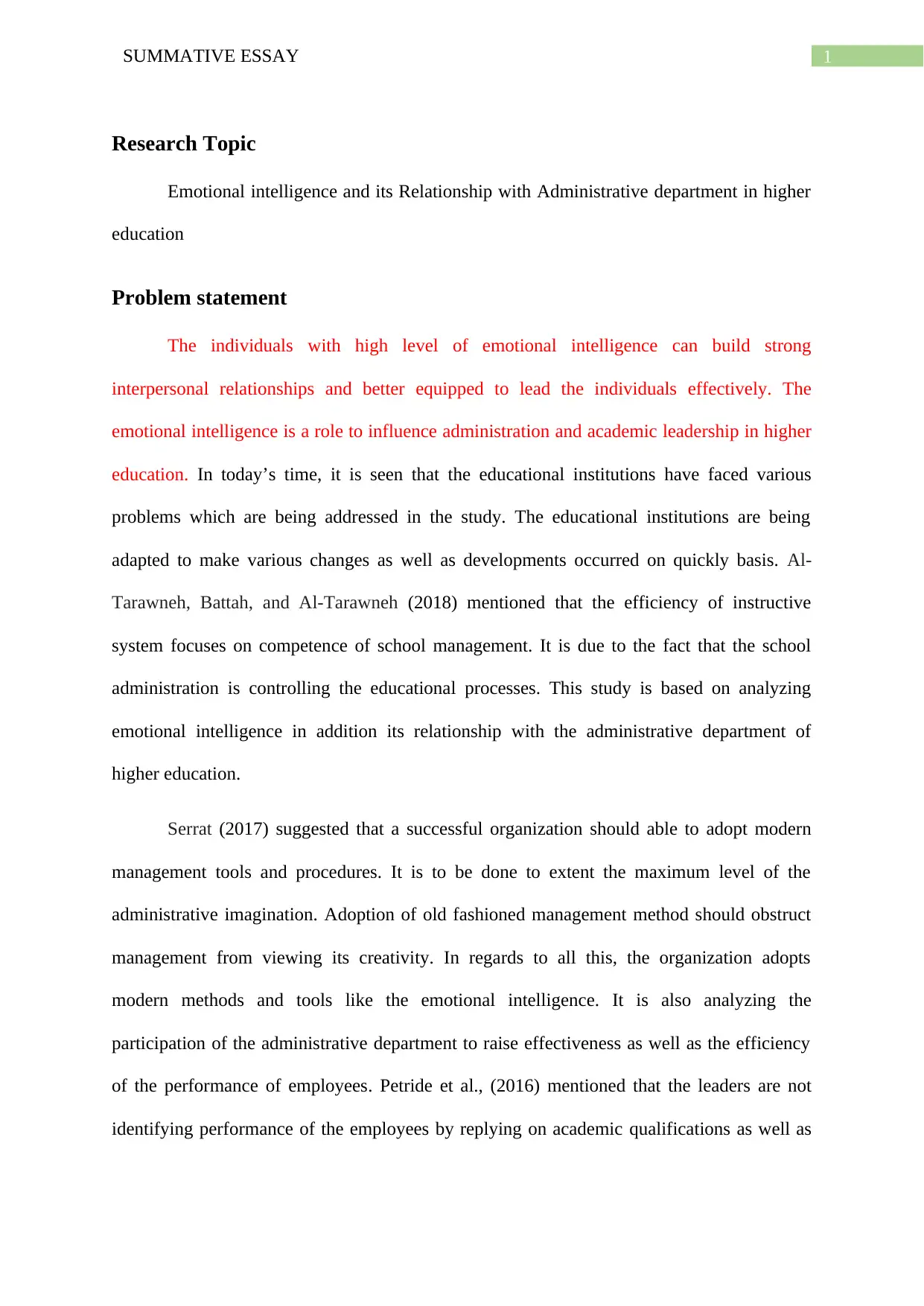
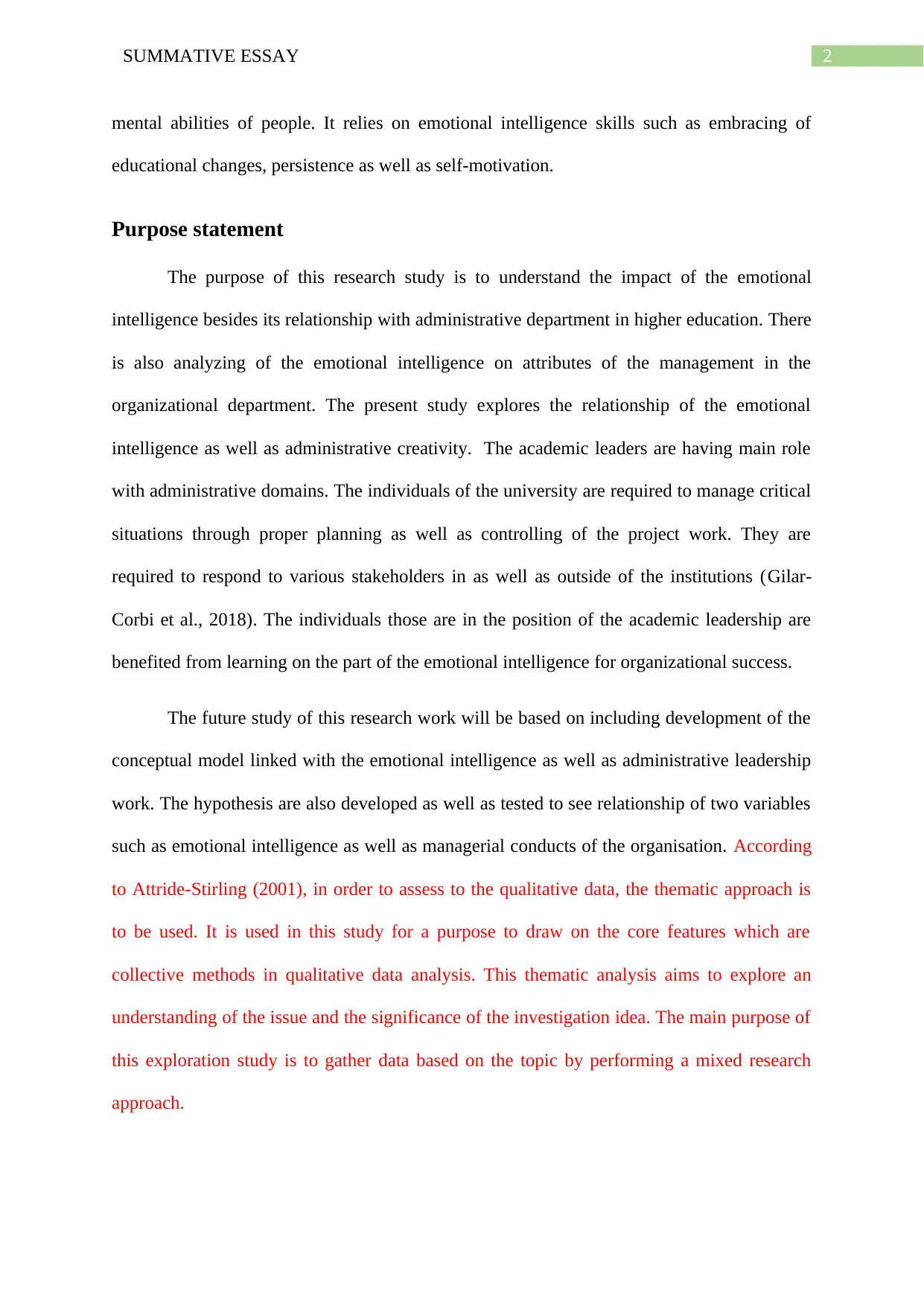

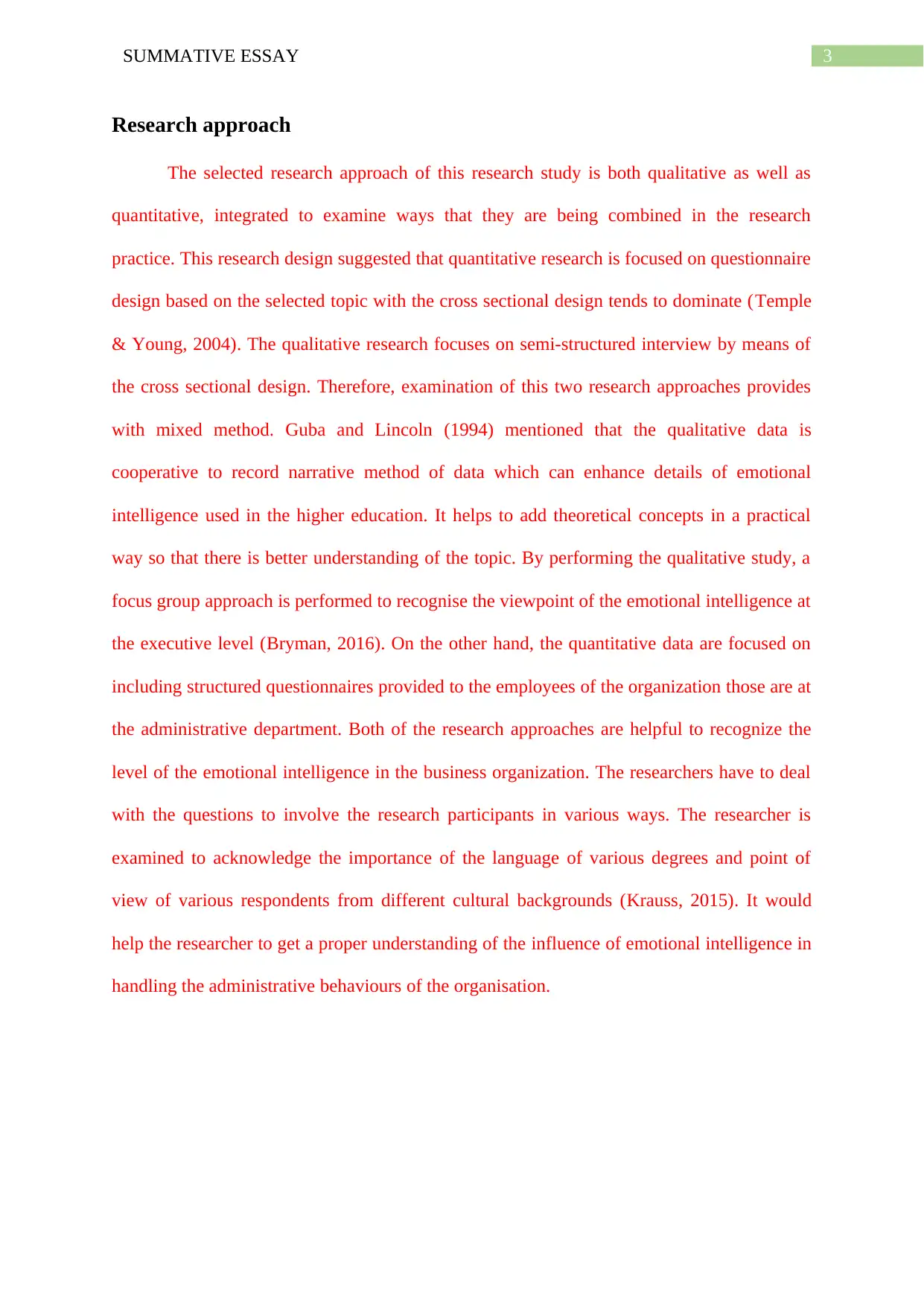
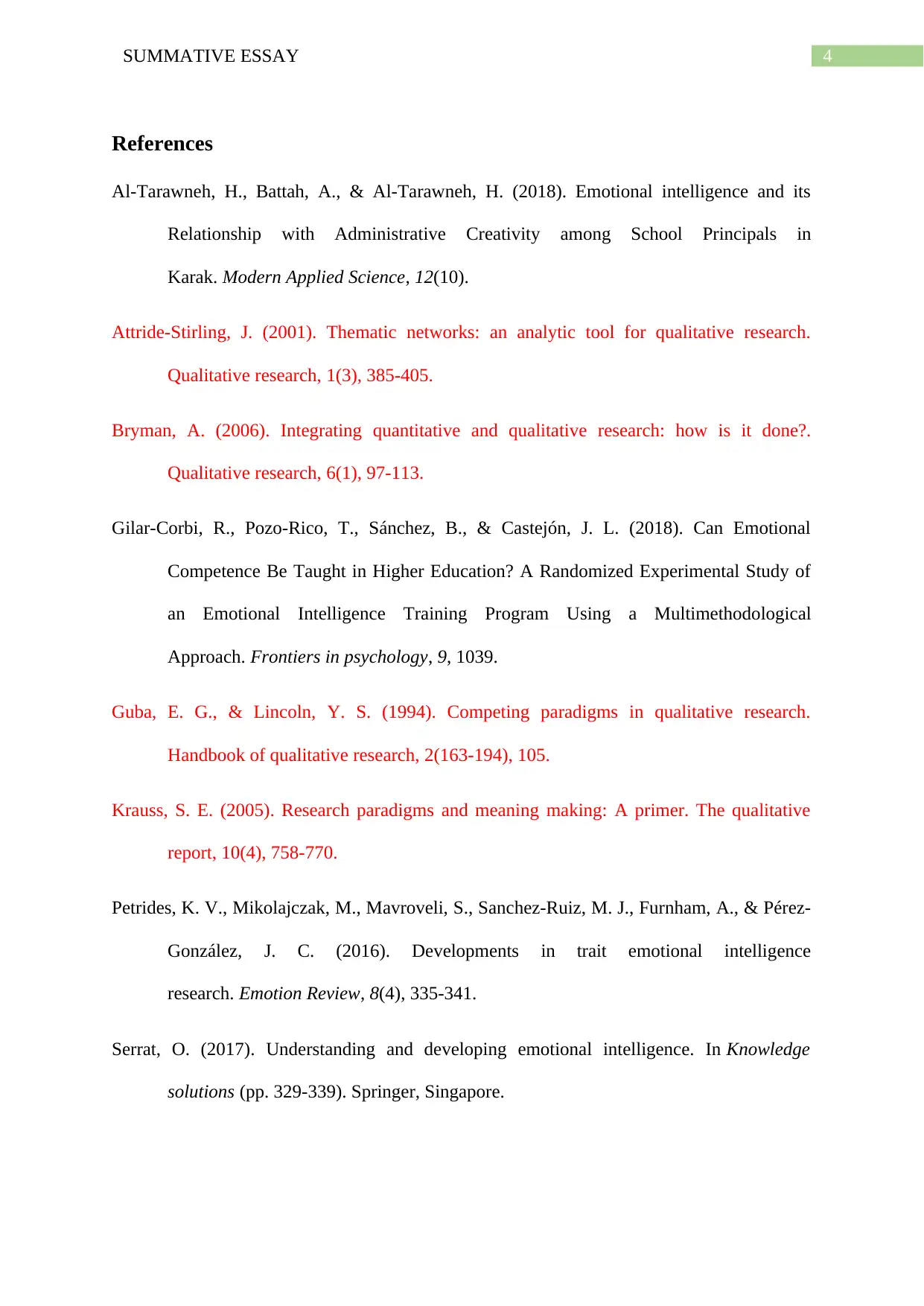







![[object Object]](/_next/static/media/star-bottom.7253800d.svg)